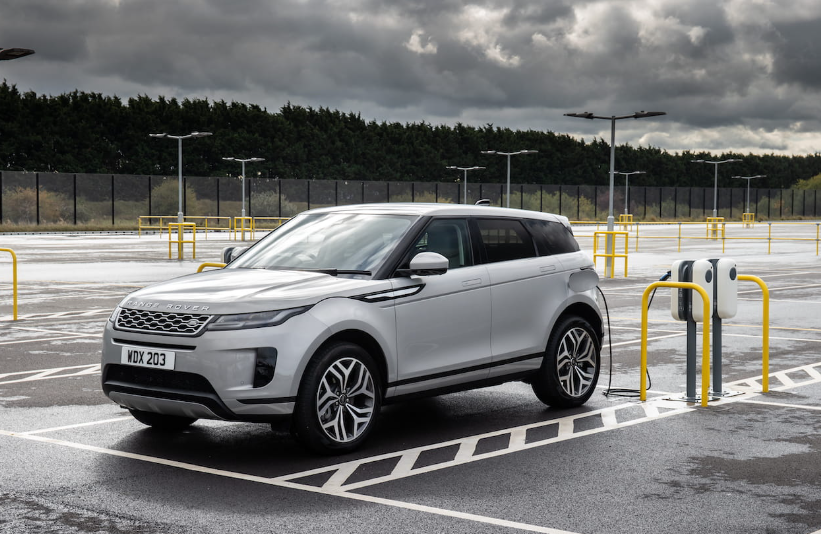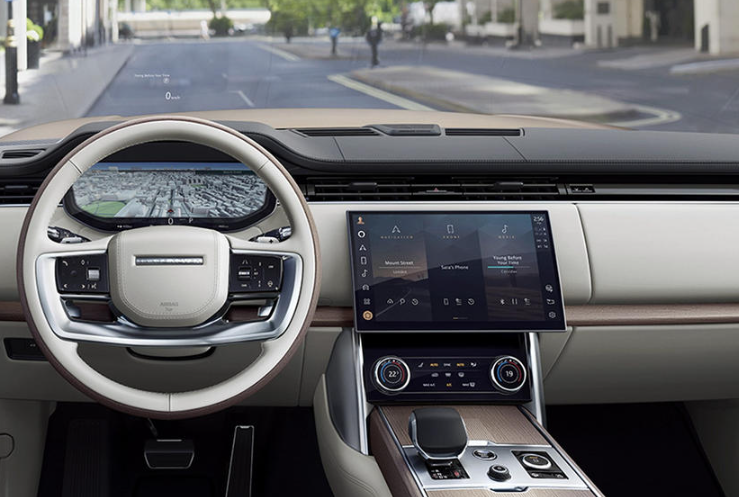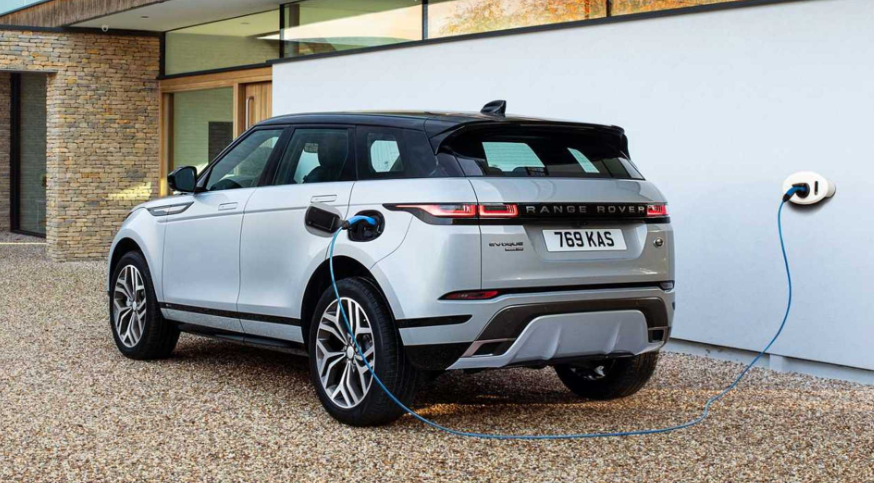The latest Range Rover Evoque proves that style and substance can go hand in hand. It’s one of our favorite family SUVs. The best interior in its class and all the comfort, practicality, and performance buyers could desire to make it our favorite. Land Rover isn’t content to rest on its laurels. Work has already begun on the next-generation Evoque. It is due to be released in 2024, six years before the Government’s proposed ban on new petrol or diesel cars. The next-generation Evoque will feature new underpinnings that are specifically made for electric vehicles. This will allow Land Rover the latest connectivity and driver assistance systems. The next Evoque will be the smartest and most secure yet.

The Evoque’s driver assistance system will be more alert to its surroundings and allow it to keep the vehicle on the road. It can also monitor the driver for tiredness and maintain its position on the motorway. The Evoque can take over the driving duties of the driver when conditions permit. They won’t have to hold the steering wheel or pedals. This type of system was announced by the Government as legal in the UK at the end of 2012.
2024 Range Rover Evoque Redesign
It will feature a new version of Land Rover’s Pivi Pro infotainment software. This system is expected to be displayed on dual touchscreens, just like the Range Rover Evoque. An augmented reality head-up display, which can project information onto the windscreen (including sat-nav directions) will also be standard.
Next time, there won’t be any pure petrol- or diesel-engined models. Even entry-level models won’t be purely petrol or diesel-engined. Instead, they will be plug-in hybrids. They will likely use the same setup as the P300e, which has a 1.5-liter petrol engine and an electric motor. The current P300e can only manage 34 miles using electric power, but the next Evoque will have at least 60 miles.
Land Rover engineers are reportedly considering Evoque versions with range-extender technology. This means that the Evoque will be fitted with a small petrol engine, which acts as a generator and recharges the battery but does not directly power the car’s wheels. The technology will be used in the Nissan Qashqai, a family SUV that will debut the technology. While the battery can only provide a range of 1.8 miles, the engine will run at lower revs than a conventional hybrid car. This will make it more efficient and quieter. The Evoque’s all-electric version will be the highlight of the lineup. Although it is not known what battery or motor layouts they may use, even more, affordable models will likely be capable of surpassing the Jaguar I-Pace’s official range of 290 miles. The Volvo XC40 P8 recharge can travel up to 260 miles between charges.

The next Evoque will likely be larger and longer than the current model, so it should have more space. Recent spy photos show prototypes that have longer bodies and bigger rear windows. This could indicate that the Evoque will soon be able to compete with the Mercedes GLB in a larger seven-seat version.
The Evoque’s price will likely be more than the PS32.115 today’s car. It will cost around PS40,000. The next generation of the Evoque will be significantly more expensive than the entry-level versions the Volvo XC40 and Audi Q3 respectively, but the gap is smaller when compared to the plug-in hybrid versions. For example, the Volvo XC40 T4 recharge plug-in hybrid costs only PS37,345. The next-generation Land Rover Discovery Sport will have the same engine options and underpinnings as the Evoque. It is expected to be available for sale in the months following the Range Rover.
Specs & Platform
JLR is creating a new platform called EMA (Electrified Modular Architecture). This platform can be used to support either a native BEV or a pure electric-biased platform. JLR announced that the Discovery Sport and the new Evoque are two of the cars built on this platform at the 2021 Investor Day, in March 2021. It revealed that the first model built on this platform will arrive in 2024 and that it will be the next-generation Evoque.
According to a report on Autocar published on September 21, 2022, Adrian Mardell, JLR’s CFO, stated that the EMA platform was progressing through its engineering approval process by July 2022. JLR describes this platform as “born from an obsession for simplicity” and will allow the use of batteries in different shapes and chemistries. This will allow the company to be flexible and offer different configurations depending on the performance and range of customers in different markets.
Powertrain
Flat floors will be used to maximize cabin space on the EMA platform. The EDUs are in-house designed and manufactured by EMA. They deliver 92% efficiency. They will be capable of 800V and have the highest torque density in the class. JLR has estimated its energy efficiency at 4-4.5 miles/kWh. This would be a significant improvement in the I-Pace’s energy efficiency ratings. The I-Pace’s energy efficiency rating is 35.4-40.5 kWh/100 mi (2.4-2.8 mi/kWh in both EV320- and EV400 versions, according to Europe’s WLTP). The electric Evoque will offer ample space and a short waiting time at the charging station. It also has a competitive range.
The Range Rover Evoque Electric is superior to the gasoline-powered version in many ways. Customers will find driving easier with a noise-free electric motor. The flat floor will also provide more storage and passenger space, which will improve comfort and functionality. The compact dimensions of the Evoque make it an ideal urban vehicle. However, an electric powertrain’s torquey nature would make it even more efficient. It should also offer more capabilities if you like off-road driving.
Financial Times reports that JLR could source batteries from Envision AESC to power the Range Rover Evoque electric vehicle. Envision AESC already has plans to establish a new UK battery manufacturing plant. The British plant will be used by Nissan. It is to be located in Sunderland. JLR and Envision AESC could also make a deal to supply batteries. JLR’s potential volume may justify another UK battery plant. JLR would prefer that batteries are sourced from a local manufacturer, however, production sites in Spain or Hungary where costs might be lower are being considered, it was reported. Envision AESC and JLR have not confirmed any talks regarding a battery supply agreement. Thierry Bollore, the former Jaguar Land Rover CEO, briefly spoke about the EMA platform on the parent company’s Q3 FY22 earnings call. JLR is creating the platform, he said, because it, like the MLA, will allow for the design of cars with unique proportions.
2024 Range Rover Evoque Price & Release Date
According to the Autocar report, the next-gen Evoque and next-gen Discovery Sport will have higher entry prices. The base price for the Evoque was USD 46,400 in the USA, and GBP 34,000.10 in the UK at the time of this report. The high cost of electrification will play a part in the price rise. According to the British publication, the base price for the 2024 Evoque in Britain was estimated at GBP 40,000 (20.6% more). The higher price communicates the company’s premium position over German competitors, but only radical changes could justify the price increase in customers’ eyes.

Production
Autocar reports that production of the next-gen Range Rover Evoque is planned to take place at Land Rover’s Halewood manufacturing facility in Liverpool, UK. This plant was responsible for producing the first and second-generation models. JLR began the tendering process to make the factory compatible with EMA platform-based EVs. The factory will be closed for a longer time to complete the conversion, which is the year that the first EMA platform-based model is expected to arrive.